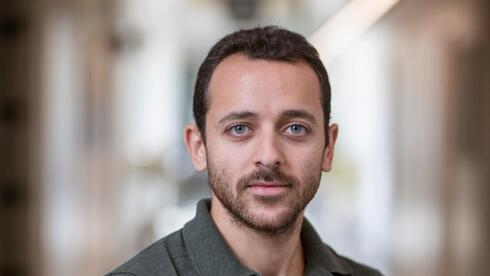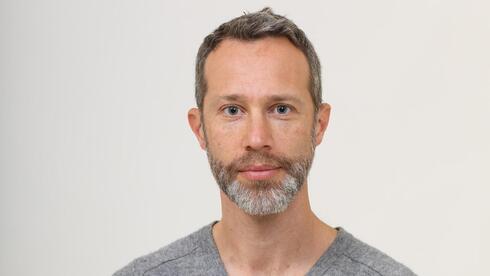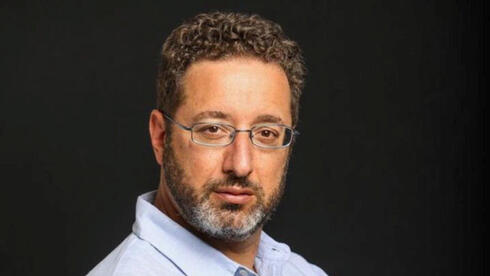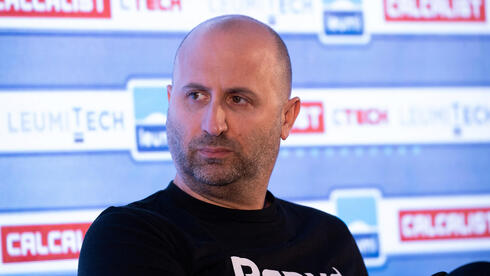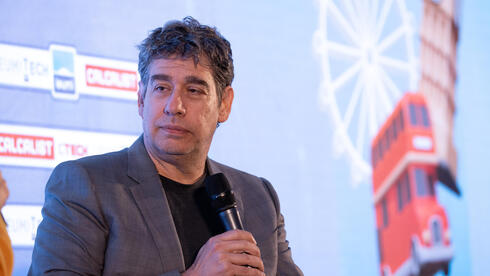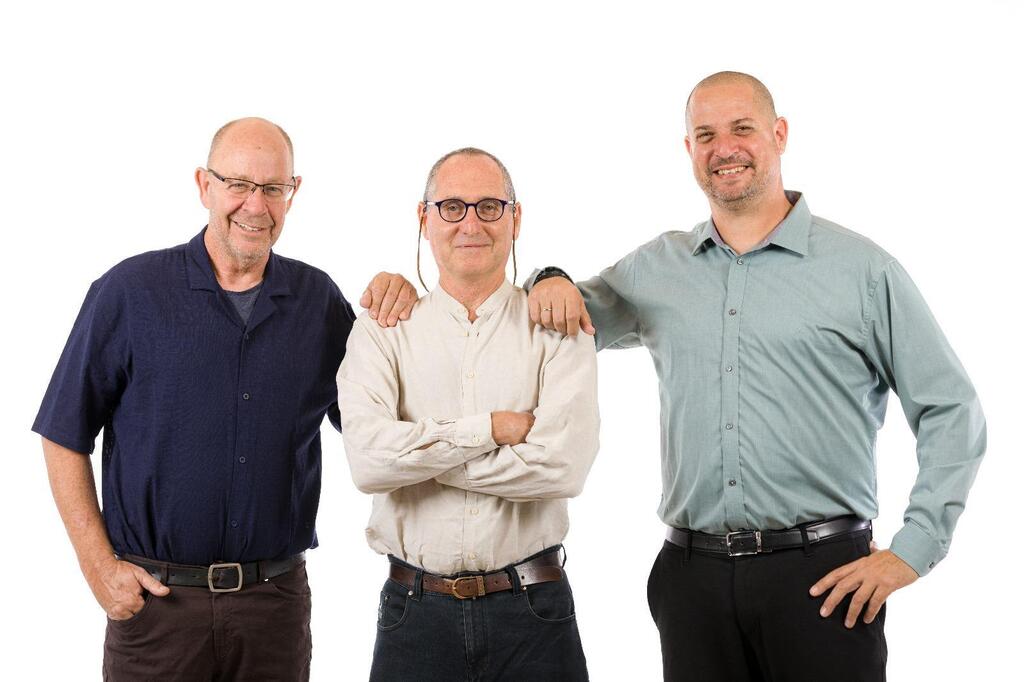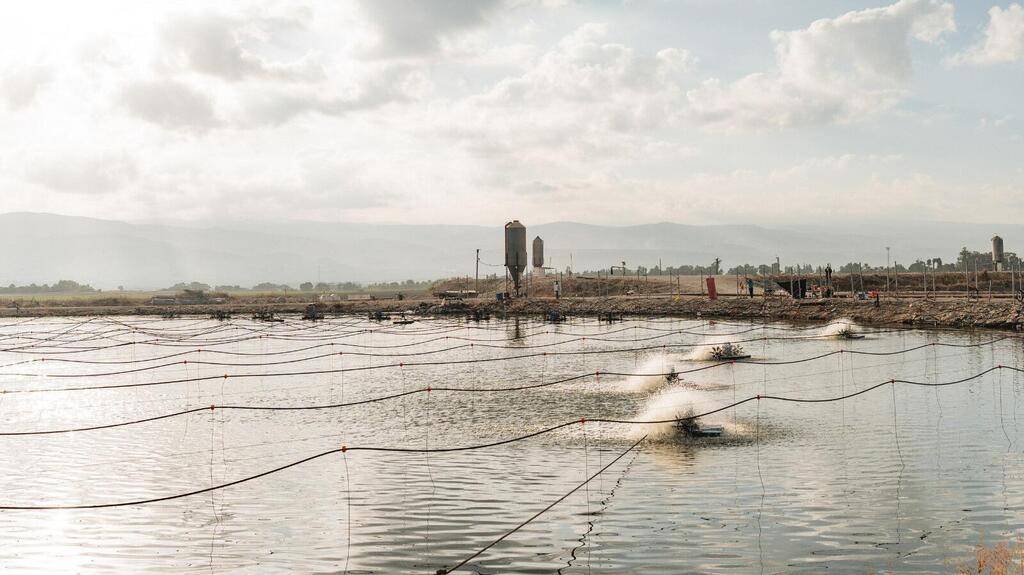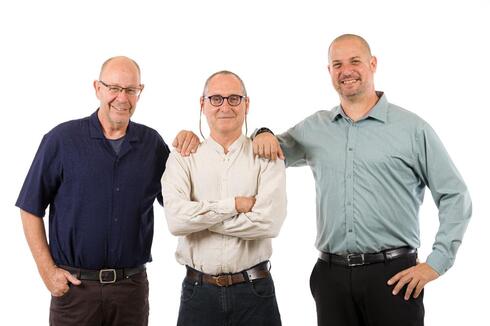
Boarding PassNobify keeps the birds at bay with its deterrence system for aquaculture sites
Boarding Pass
Nobify keeps the birds at bay with its deterrence system for aquaculture sites
The company has raised a total of $900,000 with the help of the Israel Innovation Authority, InNegev Incubator, and ICA in Israel.
“Birds are a great part of every environmental ecosystem. But birds can also cause great damage to people and businesses,” said Nobify. “This damage has developed into an ongoing conflict between birds and people for many years. The origins of this conflict lie in people’s needs to expand their use of land - whether to support growing communities, to grow food, or to produce energy.”
In the aquaculture world, which provides the majority of fish consumption even more than from capture, fish production is at risk because of birds. According to the company, fish have long been a main source of protein for the growing human population and as such they are raised in inland fishponds, that attract water and migratory birds that hunt fish, prey on fish’s food, and scatter guano.
Nobify's technology is a disruptive two-layered innovation that generates value for businesses in the form of detection, identification, and data analysis, and material, autonomous, eco-friendly, and non-harmful technological solutions for deterring birds, and promotes ecological balance. “Its bird deterrent system originated in kibbutz Neot Semadar, Israel, and has been piloted in the local market.”
The company is now scaling up to enter global markets, with the mission to strengthen food and water security and resolve the conflict between people and birds. You can learn more about its story below.
Company Name: Nobify
Sector: AI, Climatech, Agritech, Foodtech, Renewable Energy
Product/Service description:
Nobify offers an autonomous, technological, and ecological solution for deterring birds from large aquatic areas, utilizing a multi-sensor approach and advanced artificial intelligence. This cost-effective solution prevents bird adaptation and enhances business efficiency by protecting vulnerable areas like fishponds, solar panels, and more.
Founder Bios:
Ofir Tessler, CEO: Served as a military officer in various commanding positions; Senior executive, leading teams, business ventures, and operations; Aerospace, UAS, HLS, Business continuity, and Tech Integration.
Eitan Cohen, CTO: Former chairman and current board member of Eilat-Eilot Renewable Energy; BSc with honors in Computer Engineering, Technion – Israel Institute of Technology; Co-founder of kibbutz Neot Semadar; Monitoring, Hydraulics, and Pneumatics expert
Avi Zioni, R&D Op. Manager: Co-founder of kibbutz Neot Semadar; Entrepreneur, Designer, and project manager of Neot Semadar Art Center; Operations, Sales, and Customer success.
Year of Founding: 2024
Last Investment Round: $800,000
Last Investment Stage: Pre-Seed
Date of Last Investment: January 2024
Total investment to date: $900,000
Investors: Israel Innovation Authority, InNegev Incubator, ICA in Israel
Current number of employees: 3
Open positions: N/A
Website:
https://www.nobify.ai/
How was the idea born?
As part of their community involvement in Neot Semadar, Avi initiated the planning and construction of the Neot Semadar Arts Center, where he first encountered first-hand the necessity to handle the conflict with birds, as he had to deal with the piling of pigeons' guano on the rooftops and through the window cracks. Avi approached his lifelong friend and innovation partner Eitan and together they constructed an initial pneumatic system to deter the pigeons without harming them. A market analysis that we conducted later shows that the two most prominent use cases where the conflict of birds and people is heightened are the inland aquaculture market and the renewable energy market, with a specific emphasis on Floating panels, i.e., FPVs.
Avi and Eitan started working with the Ministry of Agriculture in fishponds and FPV sites, and these pilots showed great results. After two years of working with the Ministry of Agriculture, they installed the system in a private fishpond site that was interested in testing the system and was so happy with the results it became a customer of the system. At the same time, they expanded the uses of the system to private FPV sites, where floating solar panels are located on top of fishponds to achieve the maximum value for each site. Soon after, Ofir joined the founding team – with an esteemed managerial background, great passion for innovation and a burning desire to solve the particular conflict of men and birds, and the three began working on submitting the system for funding from the IIA while perfecting its operation by adding the AI and data analysis layer. They received funding from the InNegev incubator and the IIA after successfully proving the innovation of their solution, the feasibility of their business plan, and their skills as a founding team. Upon receiving the funding, they started working on expanding collaborations in the inland aquaculture field and in the FPV market.
What is the need for the product?
Birds are a great part of every environmental ecosystem. But birds can also cause great damage to people and businesses. This damage has developed into an ongoing conflict between birds and people for many years. The origins of this conflict lie in people’s needs to expand their use of land - whether to support growing communities, to grow food, or to produce energy. For example, In the aquaculture world, which provides the majority of fish consumption even more than from capture, fish production is at risk because of birds. Fish have long been a main source of protein for the growing human population and as such they are raised in inland fishponds, that attract water and migratory birds that hunt fish, prey on fish’s food, and scatter guano.
Another example is Floating Photovoltaic systems - A.K.A as floating solar panels. In many sites worldwide, fishponds are used as a cot for FPVs, which in turn are used for greener energy production. The versatile use of fishponds enables renewable energy entrepreneurs to provide efficient solutions to many problems without compromising great parts of land. However, birds also identify the potential of these sites, using the fishponds as an all-included 24-hour bouffe, and the FPVs as their sanctuary island to settle in and embark on hunting journeys from.
Birds’ presence in such sites reduces the productivity of each of the industries by at least 30%, which leads to financial losses to all entrepreneurs involved, to the ongoing need for subsidiaries and compensation for losses, and maintains a dependency on polluting industries at the expense of ecological solutions.
This is where Nobify comes in. Nobify’s two-layered solution combines state-of-the-art innovative software, based on computer vision and artificial intelligence with proprietary hardware that enables detection, identification, classification, and alerts, using a multi-sensor system and AI models, and the ecological deterring of birds in a unique method.
How is it changing the market?
Nobify’s two-layered solution disrupts the market in several ways: First, Nobify’s system introduces data regarding birds to markets where data is currently not gathered. Nobify enables entrepreneurs and site managers to make data-driven decisions, analyze the specific characteristics of their sites, and adjust their operations according to real-time detection, identification, classification, and alerts.
Second, Nobify’s multi-sensor approach limits the solution’s interference with the natural habitat to a minimum, introducing ecological standards to the management of the ongoing conflict between people and birds. Limiting the physical interference in the natural habitat reduces direct and indirect pollution, reduces plastic waste, protects the lives and health of people and birds in each environment, and contributes to the maintenance of sites for longer periods.
Third, Nobify’s unique deterrence method prevents birds from studying patterns of the solution and by doing so, prevents birds from bypassing the system or adapting to it. This is also a cost-efficient method, in which only areas that are being endangered by birds will activate the system, whereas in other areas to which birds are not approaching the system will not be activated.
Nobify’s solution changes the market by creating a unified solution that enables tailor-made adjustments to the specific needs, pains, and characteristics of each site. The solution is ecological and protects the natural habitat around it. The solution adheres to the highest ecological standards and complies with the UN SDGs. The solution is reactionary and harnesses the needed resources to handle a problem only when it occurs, and so disables any possibility to study patterns and bypass it. Thanks to all that is mentioned above, Nobify's solution proposes a great business and sustainable value.
How big is the market for the product and who are its main customers?
The TAM is $25 billion, and the SAM is $13 billion regarding the inland aquaculture market. The FPV market is still in its early days but is already showing a 40% CAGR.
Our main customers are spread through a variety of industries:
- Aquaculture and particularly inland fishpond site owners and managers
- Solar panel companies and entrepreneurs
Does the product exist already? If not - at what stage is it and when is it expected to hit the market?
Yes, the product has an MVP1 version that has already been sold, and MVP2 is currently being launched in October 2024.
Who are the main competitors in this sector and how big are they?
Nobify’s solution is the ultimate solution for the deterrence of birds from various sites. Due to the fact that each of these sites represents a different industry, there are a variety of solutions, aiming for different industries. The most popular solution for fishponds is nets; FPVs currently do not invest in the deterrence of birds but only in the cleaning of the panels, and therefore the main solution is private cleaning companies. That is also the case for solar panels in dry sites, such as rooftops.
Nobify provides one solution for all these scenarios and more. Currently, we focus on fishponds and FPVs, and have included dry solar sites and aerial runways in our roadmap.
What is the added value that the founders bring to the company and the product?
There are no better people to take on Nobify than its founders. Avi and Eitan are the ones who envisioned the system, designed it, tested it, and adjusted it to be so adaptive. Avi’s hands-on approach is what brought about Nobify’s MVP1 and a great force that drives MVP2, as will continue to be along the way. Eitan’s innovative approach to technology, his expertise in the field of renewable energy, and his ability to transform a vision into reality is what makes him the best CTO for Nobify.
Ofir’s expertise in management throughout a span of various industrial fields, his understanding of the business needs, the material pains caused by birds, his commitment to ecology and a harmonious existence of healthy people in healthy environments, his strategic capabilities, and his ability to see the bigger picture and translate issues from the here-and-now to be a part of a greater vision and a greater solution make him the best CEO for Nobify.
What will the money coming in from the round be used for?
- R&D: For mass production
- Marketing: And adapting our solution to the global market
- Personnel: To expand our team to support the growing interest in our products and adapt quickly to Nobify's scaling-up process
In the "Startup Boarding Pass" section, CTech will cover the (relatively) small investments made in companies during the early stages of their existence - and the entrepreneurs and startups who have not yet had the opportunity to reveal their stories to the world. Please use the linked form and fill it out according to the guidelines. This form is intended for startups raising between $500,000 and $3 million from venture capital funds, angels, or official grants from Israeli and foreign institutions. If relevant, someone at CTech will be in touch for follow-up questions.




